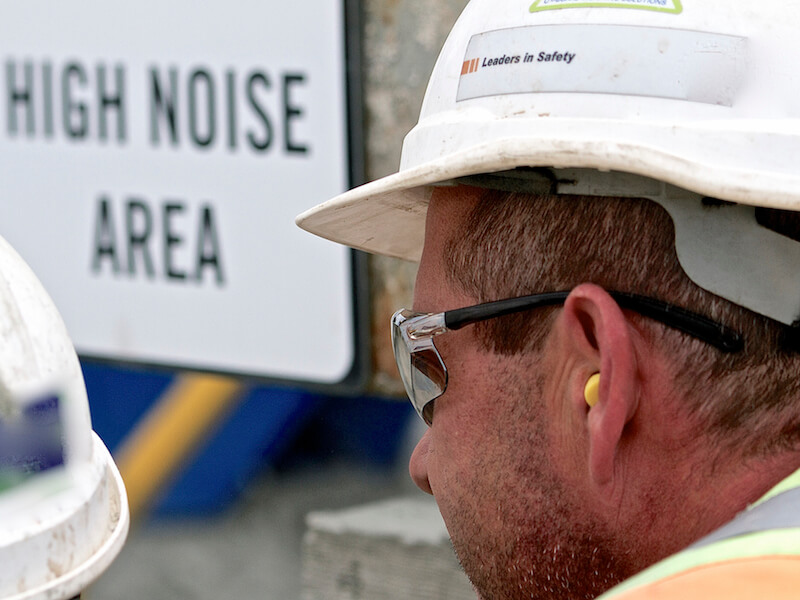
Your hearing can be harmed by a loud workplace and it can also affect your focus. The health of your hearing can be negatively affected by even modest noise levels if you’re exposed to it for several hours every day. For this reason questions like “what hearing protection do I need?” are worth asking.
Many of us probably didn’t even realize there were numerous levels of hearing protection. But it makes sense when you stop to consider it. A jet engine mechanic is going to need a different level of protection than a truck driver.
Levels of Hearing Damage
The fact that 85dB of sound can start to damage your ears is a standard rule of thumb. Putting sound into context regarding its decibel level and how dangerous it is, isn’t something the majority of us are used to doing.
When you’re sitting in your car in city traffic, that’s about 85 decibels. That’s not a big deal, right? Wrong, it’s a big deal. It becomes a big deal after several hours. Because it’s not just the loudness of the noise that you need to be aware of, it’s how long you’re exposed.
Typical Danger Zones
If you’re exposed to 85 dB of noise for eight hours a day or more, you need to consider using ear protection. But there are a few other important thresholds to take note of. If you’re exposed to:
- 90 dB (e.g., lawnmower): injury will begin to happen to your hearing if you’re exposed to this volume of noise for 4 hours a day.
- 100 dB (e.g., power tools): Anything above one hour is considered harmful to your ears.
- 110 dB (e.g., leaf blower): Injury to your hearing occurs after 15 minutes of exposure to this noise level.
- 120 dB (e.g., rock concert): If you are exposed to this noise level for any length of time, your hearing can be harmed.
- 140 dB (e.g., jet engine): This amount of noise will lead to immediate harm and most likely pain to your ears.
You’ll want the hearing protection you wear to be sufficient to bring the volume below that 85 dB level, particularly if you are exposed to those noises for any duration.
Find a Comfortable Fit
NRR, which is an acronym for Noise Reduction Rate, is a scale used to measure the effectiveness of hearing protection. The outside world will become progressively quieter the higher the NRR.
It’s very important that you choose hearing protection with a high enough NRR to effectively protect your hearing (and your workplace will typically make guidelines about what level will be appropriate).
But there’s another element to consider also: comfort. It turns out, comfort is incredibly important to keeping your hearing healthy. Why? Because if your hearing protection isn’t comfortable, you’re not going to wear it.
Hearing Protection Choices
You’ve got three basic options to choose from:
- Earplugs that sit just outside of the ear canal.
- Earplugs that go within the ear canal
- Earmuffs.
Each form of protection has advantages and disadvantages, but personal preference is often the deciding factor. Earmuffs are a better option for individuals whose ears are irritated by earplugs. Other individuals might value the leave-them-in-and-forget-them approach of earplugs (obviously, you won’t want to forget them for too long… you should remove them at the end of your workday. And clean them).
Find a Consistent Level of Hearing Protection
Comfort is essential because any lapse in your hearing protection can lead to damage. If earmuffs are scratchy and uncomfortable you’re more likely to take them off for short periods and that can have a negative impact on your hearing over time. So the most crucial decision you can make is to pick hearing protection that you’re comfortable leaving in place during your workday.
Investing in the level of hearing protection you require can help keep your ears happy and healthy.